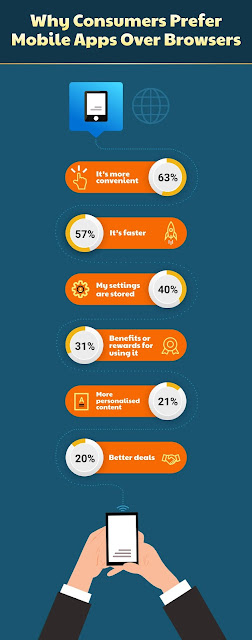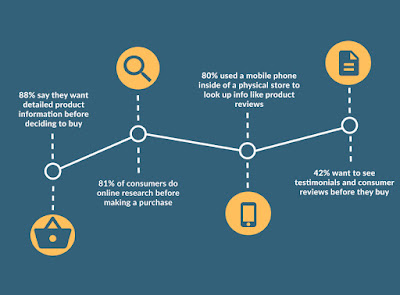The Internet’s Farmers Market: 3 Reasons to Join an Online Marketplace
Anyone who has been to a Farmers Market knows why they’re popular.
There’s something unique about finding specialty items, discovering
products you didn’t know existed, and exploring the astronomical number
of items sold in one place. Their growth (a 79%1 increase
over a 10 year period) shouldn’t come as a surprise. After all, when
was the last time anyone saw a lone stand selling artisanal honey? Such a
stand would be difficult to generate awareness and inspire turnout, not
to mention ensuring all the paperwork was in place and the structures
were set up correctly.
Now imagine our artisanal honey seller wants to sell online. Instead of
deciding whether to sell at a stand or a farmers market, they have to
decide between an independent website and joining a marketplace. When
making this decision, there are many factors that have a large impact
but aren’t immediately obvious. Having a mobile-compatible platform, the
marketing reach to attract people, and the technical know-how to
implement everything that needs to be done is often not feasible for a
single store. However, they absolutely cannot be overlooked or ignored.
#1 - Selling On Mobile
Selling online is clearly important, and that applies to all mediums of selling online. Having a method of buying on mobile devices that is both functional and aesthetically appealing is crucial. More Google searches are done on mobile devices than are done on desktop computers, and of those searching with smartphones for something nearby, 76%2 visit a business related to their search within a day. The scenario of a shopper using their phone to Google “where to buy shoes” and then clicking on the mobile website of an independent shoe retailer is an incredibly common one. |
| Infographic Data Source |
Realistically, it is next to impossible for a store to make an app by themselves. If they did, they would still need to attract people to the app, facilitate downloads and purchases, etc. That’s where an online marketplace becomes beneficial. Online marketplaces have already laid the technological framework for stores to sell online. They also have a larger reach than small businesses could get on an independent app, as well as an established base of consumers. Small businesses do not have to do any additional marketing to attract people to the app or website; the marketplace provides all of that for them.
#2 - Reach
Small businesses often struggle with visibility. As it stands, over 66%5 of small businesses sell products through their own websites, which translates to shoppers experiencing a huge amount of noise. Customers do not want to do laborious searches for products and eventually will stop clicking through small businesses’ website simply due to search fatigue. Once a purchase does happen, small businesses then have to worry about if the shopper will remember where the purchase occurred, especially if they are making similar purchases at other websites. It is difficult to stick in a shopper’s brain when they have to keep a list associating 123.com with where they can buy cups and ABC.com with where they can buy pens. Marketplaces not only provide a single website for customers to remember, but they also record a history of orders to make it easy for shoppers to make repeat purchases.Marketplaces provide shoppers with a one-stop-shop, increasing the overall traffic to the marketplace’s website. This also makes it easier for shoppers to find stores on the marketplace since the limited number of entries on the marketplace means they do not need to find the specific search term necessary to find a store on Google. The ease is noticed by consumers, which is why 96%6 of Americans have made a purchase from an online marketplace. Americans like the marketplace model and like to shop on it; in 2017, there was over $1.5 trillion7 spent on online marketplaces, half of all online sales. Accessing that segment is a logical way to increase sales, which is why 70%8 of small business owners stated that joining an online marketplace increased their sales.
#3 - Technological Setup
To begin selling online, setup is of paramount importance. Thinking of potential improvements is easy: a way to sell online, a way to sell on mobile, a way to track the inventory, a way to analyze who purchases items at what time, etc. The actual difficulty comes with the creation and implementation of those ideas.That is where marketplaces have the advantage. Selling on a marketplace app provides access to the 79%9 of smartphone users who made a purchase on their mobile device without the setup expense. Some marketplaces also provide insights into how many people have viewed the webpage, what the most popular seller is, etc. Depending on the platform, businesses can often start selling just by entering in their inventory.
Why Samyata?
The Samyata app provides all the benefits of an online marketplace and more.1. The Samyata app is designed to reach customers on mobile and make the transaction as easy as possible for all parties. Shoppers have a variety of search options designed to help them find what they want from stores near them.
2. Samyata's location-based technology provides the reach of an online marketplace without requiring competition with store across America (or potentially the world). Because it is based around geographic location, the total number of stores on the platform does not increase competition for the average store. A store based out of Kansas is not competing with one based out of New York. Instead, stores have the reach provided by moving online without needing to compete with international companies or ship cross-country.
3. To get started on Samyata, all stores need is their inventory information. Once stores start selling, Samyata's algorithm will provide them with analytical insights and best practices to improve customer satisfaction.
Interested? Sign up and see what Samyata Store can do for your business.



Comments
Post a Comment